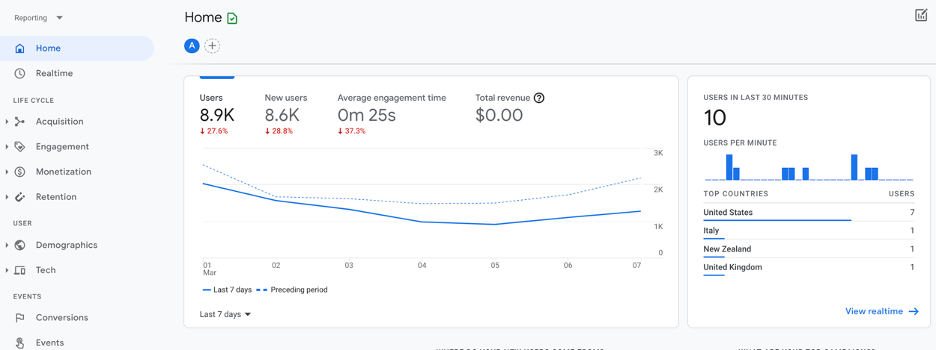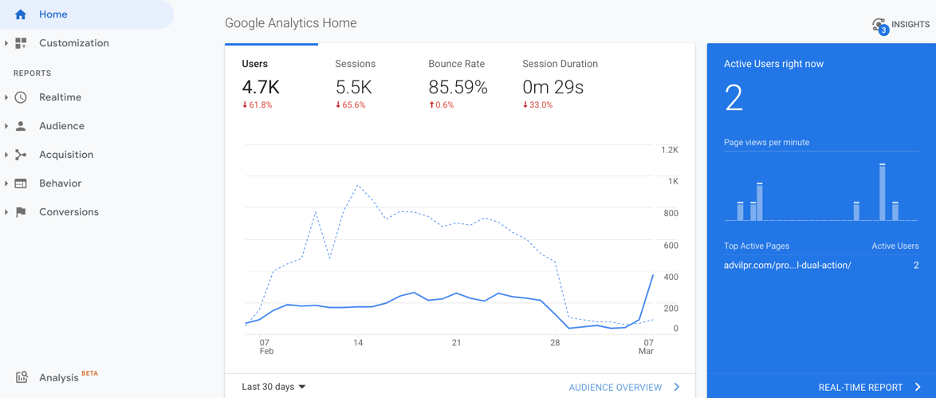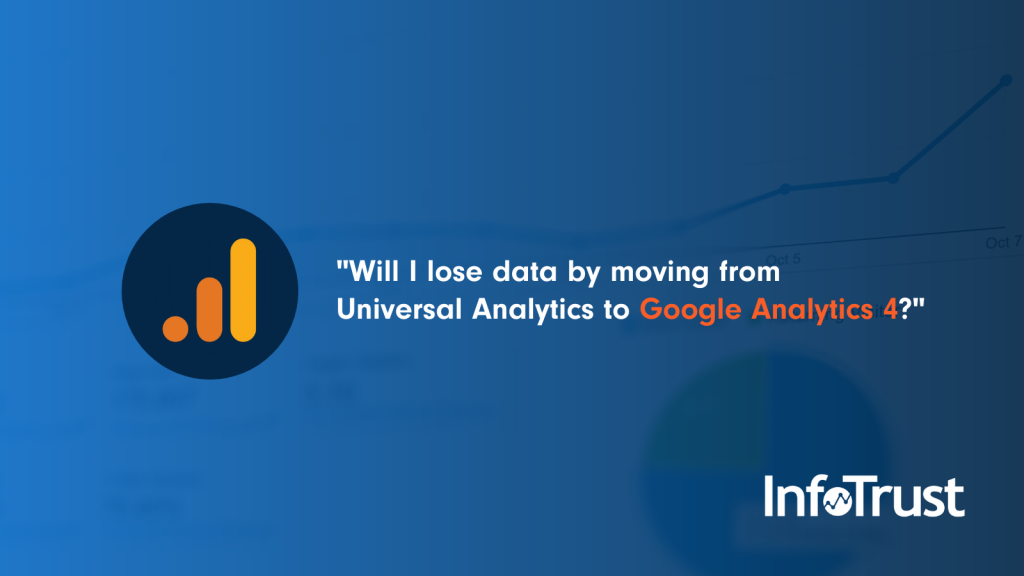As web analysts begin preparing for the fourth generation of Google Analytics, aptly named “Google Analytics 4,” a few common questions have cropped up concerning the migration from the third generation of Google Analytics, Universal Analytics (UA).
Inquiries include:
- “Is feature ABC available in Google Analytics 4?”
- “What are the key differences between Universal Analytics and Google Analytics 4?”
And perhaps most importantly:
- “Will I lose my data by migrating from Universal Analytics to Google Analytics 4?”
Today we’ll tackle that question, but in order to get there, it certainly makes sense to touch on the former two, as well.
What Features are Available in Google Analytics 4?
First and foremost, Google Analytics 4 (often referred to simply as “GA4”) still has a long product roadmap ahead. Most standard Google Analytics 4 features are available today, and from what we’ve tentatively heard, the remaining will be rolled out by the end of 2021, with possibly the last few enterprise features appearing in 2022. That means we’re quite a few months away from Google Analytics 4 being a polished product like Universal Analytics—meaning now is the perfect time to begin preparing for the eventual transition to GA4.
A few key differences between Universal Analytics and Google Analytics 4 are listed here:
- Google Analytics 4 has a different tracking code and a different template tag in GTM. You cannot simply “migrate” or “upgrade” a property from Universal Analytics to GA4; rather you must create a separate property altogether. This also applies to advertising audiences (they will need to be recreated in GA4, too).
- The admin and reporting interfaces are different, so a learning curve is to be expected. Therefore, the sooner you begin checking out the GA4 interface, the better.
- GA4 is meant to combine web and app into one property for better cross-device analysis. This is why GA4 was being called “App + Web” properties before Google finalized the new name.
- The measurement model in GA4 is based on events and parameters instead of sessions and pageviews. This should allow for better pathing analysis and more opportunities for combining metrics and dimensions into reports.
- On a similar note, basic event tracking is much simpler. GA4 includes a number of common events—like scroll tracking and link tracking—that you can enable out of the box.
- GA4 allows for up to 30 conversions. Universal Analytics only allows 20 in the standard version, and it’s worth noting that Universal Analytics calls them “Goals” (instead of “Conversions,” as in GA4). Same concept, though.
- As mentioned above, the beta nature of Google Analytics 4 means not all features are available today. Fully-enhanced eCommerce and a robust reporting/admin API are coming soon.
Below you can compare and contrast how your home screen will appear under Google Analytics 4 versus Universal Analytics.


So… Will There Be Data Loss from Universal Analytics to GA4?
Alright, the moment you’ve all been waiting for.
The simple answer: No.
How? Because we absolutely do not recommend removing Universal Analytics from your page source or tag management system. Rather, you should follow the best practice of dual-tagging all pages of your website with both Universal Analytics and Google Analytics 4.
By dual-tagging your website or app—whether hardcoding GA4 to all pages/screens or implementing GA4 via a tag management system on all pages (recommended)—you will continue to enjoy all the benefits of Universal Analytics while beginning to collect data in your Google Analytics 4 properties.
That last point is very important; if you want your Universal Analytics audiences to be 100% ready to go in GA4, the sooner those audiences can begin populating users, the better. There is no way to simply migrate an audience from UA to GA4; it has to be collected by the Google Analytics 4 tracking code. So, naturally, the sooner the GA4 tracking code (and perhaps even some basic events and parameters) are configured, the sooner those audiences can grow and become viable for advertising efforts.
Dual-Tag, Got It—What Now?
To recap: Google Analytics 4 is not as robust of a product yet compared to Universal Analytics. But the future of GA4 is exciting, and by the end of 2021, the two should be closer to feature parity. And the best part of the dual-tagging method: there is zero risk in losing data with Google Analytics 4, simply because you will continue to use Universal Analytics until GA4 has everything you need.
Need more convincing? Be aware that we are speculating that users will begin to see new features that are only available in Google Analytics 4 (and not in Universal Analytics). And don’t be surprised if Universal Analytics is fully phased out in the not-so-distant future.
My intent here is not to scare; Google likely won’t phase out Universal Analytics until it’s appropriate, and until marketers are given plenty of time to gather historical data in Google Analytics 4. So, set up that dual-tagging sooner rather than later, and begin to reap the benefits of both.



